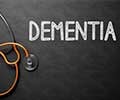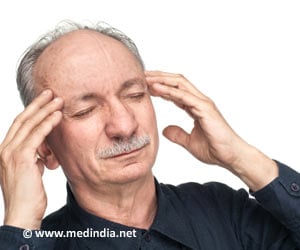- Preventing Alzheimer’s Disease - (http://www.helpguide.org/articles/alzheimers-dementia/alzheimers-and-dementia-prevention.htm)
- Dementia - (http://www.mayoclinic.org/diseases-conditions/dementia/basics/definition/con-20034399)
- What are the treatments for dementia? - (http://www.nhs.uk/conditions/dementia-guide/pages/dementia-treatment.aspx)
- Drugs used to relieve behavioural and psychological symptoms - (http://www.alzheimers.org.uk/site/scripts/documents_info.php?documentid=110)
What is Dementia?
The very mention of dementia in a medical setting can send chills down the spine, because of its association with degenerative brain diseases and memory loss. It is our memory, our power of reasoning and our thoughts that make us who we are and shape our personalities, which is why the idea of losing one’s memory and cognitive ability is so terrifying.
Dementia is a symptom that is unfortunately common in old age because it is associated with a number of degenerative age-related conditions. In dementia, the individual’s brain function is impaired and there is a gradual loss of memory and deterioration in thought process. Dementia tends to worsen over time, but there are certain drugs and therapeutic approaches that can help to slow down the progression of this condition.
What are the Types of Dementia?
There are different types of dementia that are associated with different conditions. These include:
- Alzheimer’s Disease: This is the most common condition associated with dementia. It typically starts with depression and mild memory loss. The condition causes changes in brain chemistry and as brain cells die, the symptoms keep worsening.
- Vascular Dementia: This is the most common type of dementia after
Alzheimer’s and it develops as a result of reduced blood flow to the brain. This reduction in blood flow may be associated with aging, a stroke or advanced heart disease. - Dementia with Lewy Bodies: Also known as DLB, this condition causes memory loss, confusion and hallucinations. It occurs as a result of protein deposits in the nerve cells, which somehow interferes with the relaying of chemical messages within the brain.
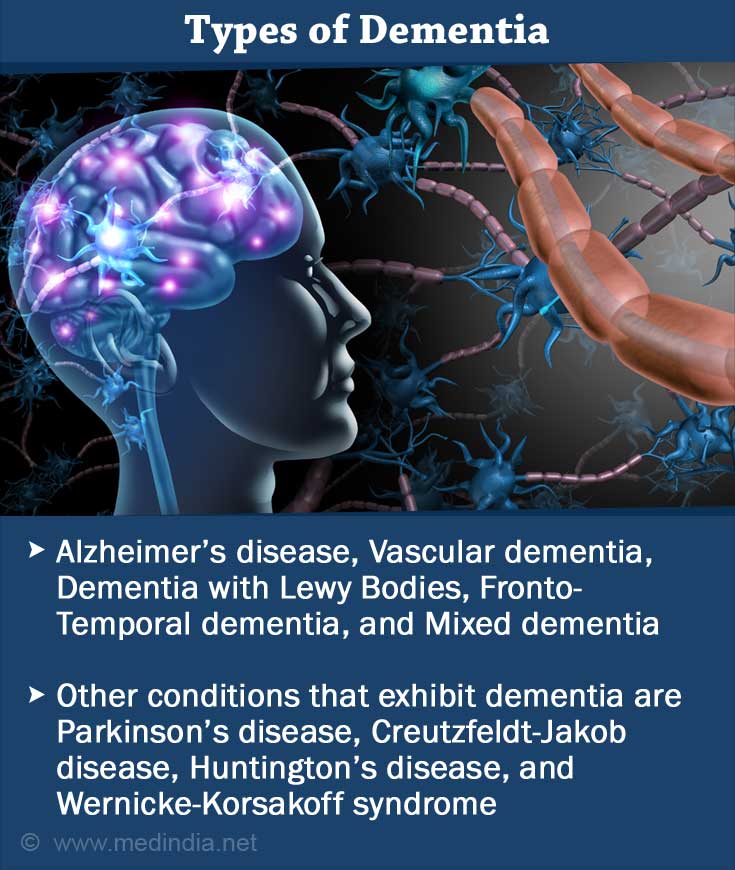
- Parkinson’s Disease: This is another dreaded condition associated with old age that causes significant memory loss in the advanced stages. At its outset, it simply affects cognitive functions, limiting one’s ability to perform tasks that require reasoning and judgment. It also affects mobility and causes involuntary movements.
- Fronto-Temporal Dementia: Unlike most of the other types of dementia, this one can strike a lot earlier, affecting adults in their mid-forties. The condition affects the sides and frontal area of the brain, which results in speech impediments and compulsive behaviors.
- Creutzfeldt-Jakob Disease: This is one of the rarest types of dementia and it is also among the fastest progressing. It begins with symptoms like depression and agitation and rapidly progresses to memory loss and confusion, resulting in fatality within a year.
- Huntington's Disease: This is a genetic disorder that causes progressive deterioration of brain function and patients tend to undergo depression and mood swings. Like other types of dementia, these symptoms worsen over time.
- Mixed Dementia: As the name suggests, this is not really one specific type of dementia but refers to the state in which a person suffers from multiple types of dementia. Alzheimer’s and vascular dementia are the two types that most often occur together but in many cases, the presence of more than one dementia may go unrecognized.
- Wernicke-Korsakoff Syndrome: Technically this is a form of severe vitamin B1 deficiency, but it is often described as a type of dementia because it causes similar symptoms with learning difficulties, memory loss and confusion.
- Other Conditions: Cognitive impairment often occurs as a result of infection with HIV and AIDs, but this tends to occur in the latter stages of the disease. Moreover, it is not the definitive symptom of the disease. Dementia may also occur as a result of normal pressure hydrocephalus in which the accumulation of excess fluid in the brain's ventricles affects brain function.
What are the Causes of Dementia?
Dementia is quite simply caused by damage to brain cells that may occur for various reasons. The damage affects the ability of the brain cells to relay and transmit information. Our behavior, thoughts, memories, feelings and various other bodily functions are governed by different parts of the brain. Different regions of the brain are responsible for different functions and the death or damage of brain cells in a particular region affects that function.
In the case of Alzheimer’s disease for example, it is the brain cells in the hippocampus that are usually the first to be affected. The hippocampus is central to our learning ability and memories, so damage to cells in this part of the brain instantly affects memory, which is why memory loss is the first sign of Alzheimer’s.
Not all cases of dementia are due to brain loss. Conditions like hypothyroidism, vitamin B12 deficiency, low blood glucose, low or high sodium levels, infections like meningitis, encephalitis, Lyme disease or syphilis affecting the brain, can also cause dementia. The patient usually recovers completely following treatment.
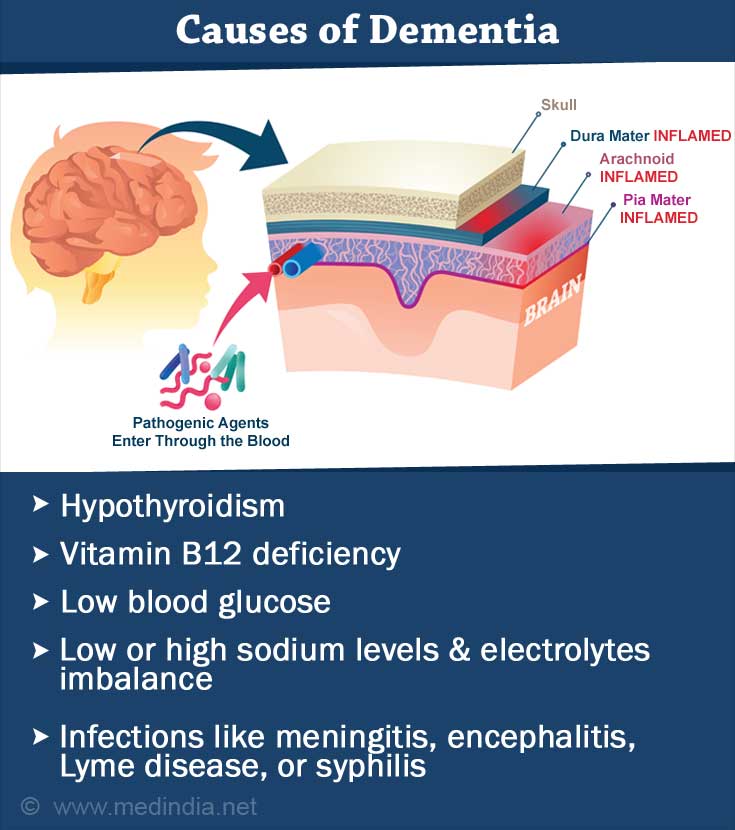
Injury to the brain can also cause dementia. The extent of recovery depends on the degree of damage to the brain.
What are the Symptoms of Dementia?
Memory loss is common as we age and it isn’t always a sign of dementia or diseases like Alzheimer’s. While it’s always a good idea to check with a doctor, don’t panic at the first signs of memory loss. A person is said to be suffering from dementia only if he/she suffers from significant impairment to at least two or more of these core mental functions:
- Memory
- Speech and communication
- Focus and concentration
- Ability to reason and judgment
- Visual perception
- Learning ability
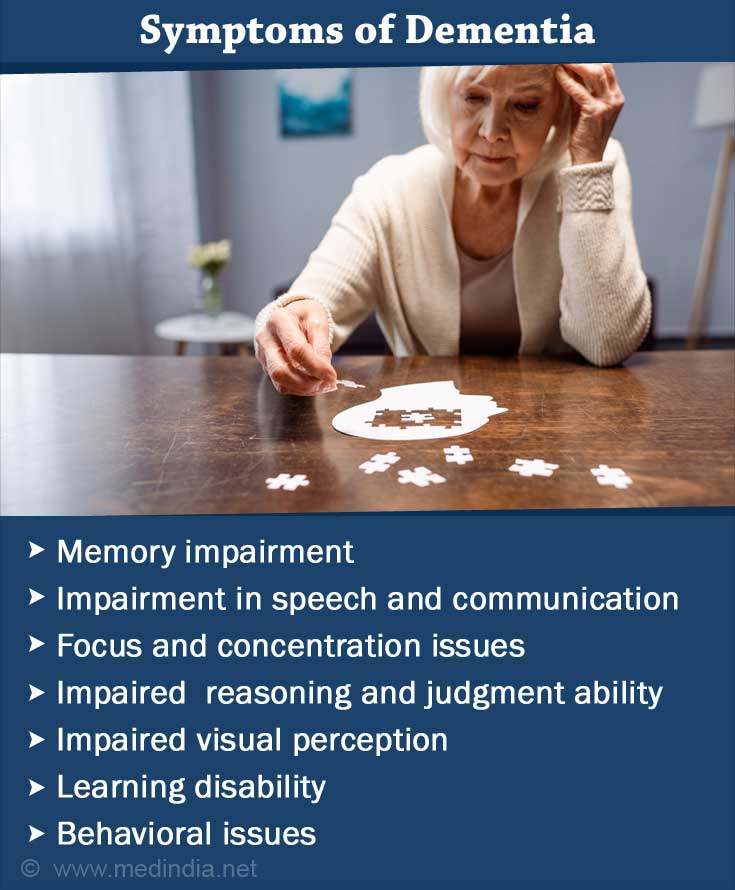
How to Diagnose Dementia?
There is no easy way to diagnose dementia and most doctors will make their diagnosis based on a careful evaluation of the patient’s medical history, changes in behavior or thought process, and a physical examination. While diagnosing dementia is not horribly tricky, identifying the type of dementia or the condition responsible for dementia can be challenging because the symptoms of the various conditions that cause dementia overlap very closely. Diagnostic tests that are often used to help confirm or make a diagnosis include:
- CT Scans to check for signs of a brain tumor or stroke.
- SPECT or PET scans may also be used to corroborate uncertain findings from an MRI and CT scan as these can detect abnormalities in blood flow as well.
- Lumbar puncture is a technique that may be used to withdraw a small amount of fluid from the spinal column that surrounds the brain and spinal cord. Examination of the fluid can give an idea of diseases affecting the brain.
- MRI scans to check for signs like brain shrinkage or blood vessel damage that are associated with Alzheimer’s and vascular dementia.
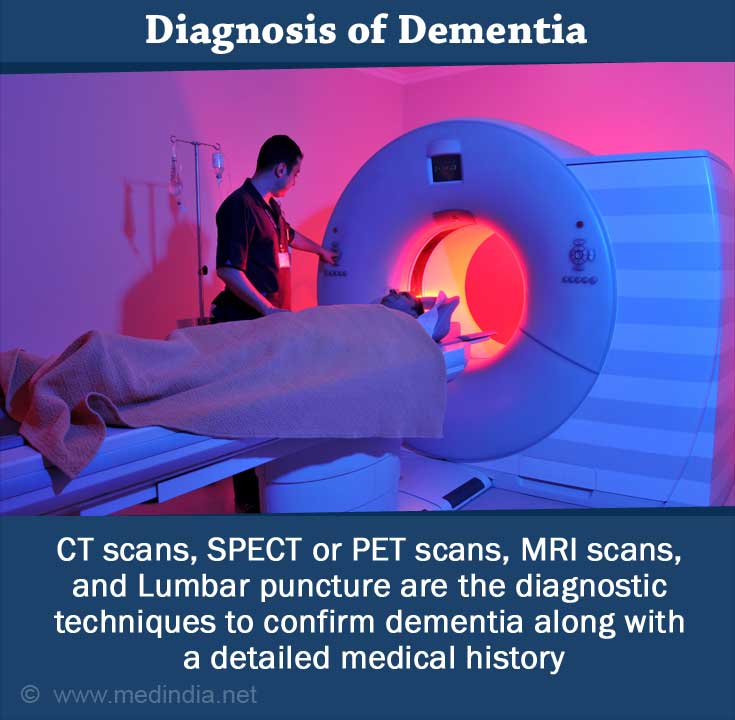
Tests should also be conducted to identify reversible causes of dementia like hypothyroidism.
In addition to such diagnostic tests, questionnaires and quizzes to test the cognitive abilities and mental acumen of the patient are often most helpful and these are widely relied on. Tests like the MMSE or mini mental state examination are routinely used to test both long and short-term memory, concentration, attention span, learning ability, communication skills and speech, reasoning powers, logic and the ability to understand and follow instructions. While such tests may not help make a diagnosis, they help doctors gauge the extent of mental impairment.
How do you Treat Dementia?
In most cases, dementia occurs as part of a degenerative condition to which there is no cure. There are some exceptions however, and in cases where dementia occurs as a result of vitamin or thyroid deficiencies, it may be treated with dietary supplements and other therapies. If caused by a physiological condition like the presence of a tumor or because of hydrocephalus or trauma to the head, surgical approaches may help to cure the condition. In other cases, where dementia is a symptom of neurodegenerative disorders, early diagnosis can make a huge difference as treatment can be used to prevent or slow the pace of damage. It is also important that treatment is provided to keep a check on accompanying risk factors like hypertension, arteriosclerosis, diabetes and smoking.
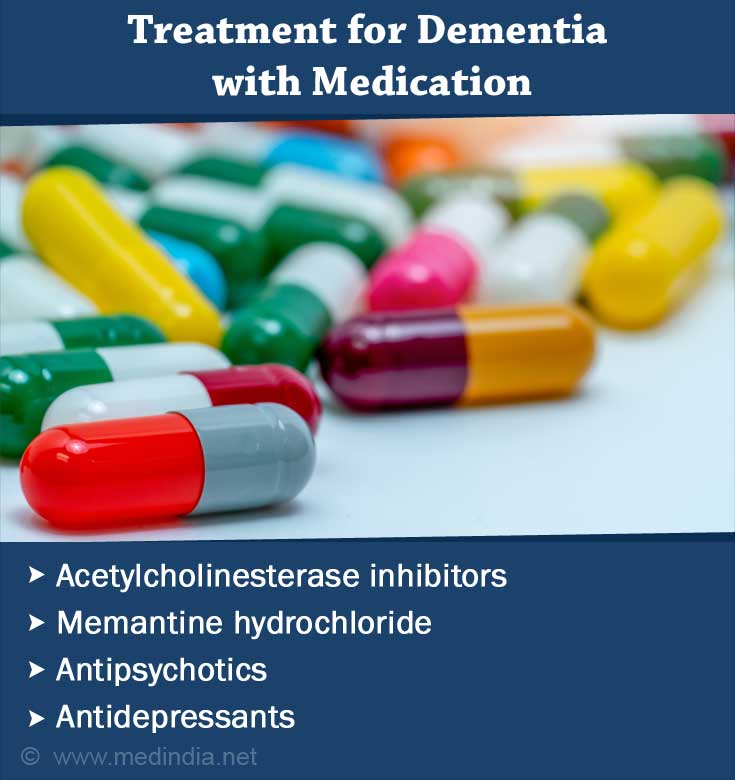
In case of conditions like Alzheimer’s disease, Huntington’s disease or Parkinson’s, where dementia cannot be cured, medications are prescribed to prevent further deterioration. This is the standard approach to treatment in the early and middle stages. This includes:
- Acetylcholinesterase Inhibitors
They are used in the treatment of mild to moderate Alzheimer’s and in the treatment of dementia with Lewy bodies, but there is some risk of side effects.
- Memantine Hydrochloride
This medication is used to treat severe Alzheimer’s and it works by blocking the effects of a specific chemical within the brain.
- Antipsychotics
These are often prescribed to treat the behavioral problems and symptoms associated with dementia, but their use presents certain risk, which can be even higher in patients with dementia with Lewy bodies. For this reason, antipsychotics are only prescribed in extreme cases when presented with behavioral problems that are highly disruptive and aggressive.
- Antidepressants
These medications are used in most cases of dementia as depression is very often the first warning sign.
In addition to treatment with medication, psychological approaches and therapies are extremely important and can include a range of behavioral therapies and cognitive stimulation techniques. Counseling is important for both patients and their caregivers if living with family members or friends.


